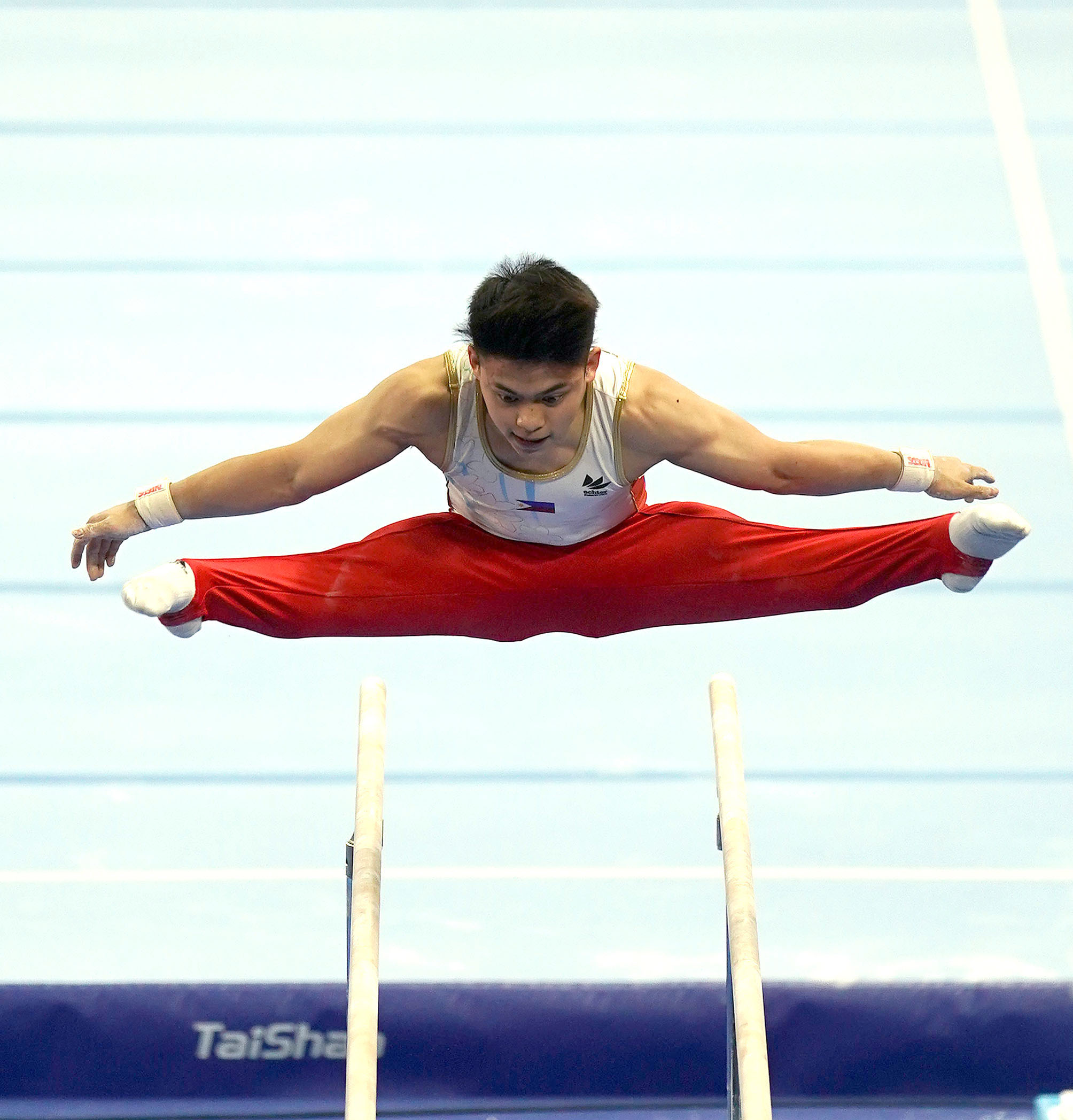
NOT FLYING HOME Carlos Yulo will remain in Japan, where the world champion gymnast studies while training for the Tokyo Olympics. —AUGUST DELA CRUZ
There was a little bit of good news for EJ Obiena, who is currently training in Italy—one of the global hot spots of the COVID-19 pandemic.“The track is open now, so I can train normally,’’ said the country’s top pole vaulter. “In a way, it’s a blessing … because I’ll have the time to really build up again and get better.’’
And then more positive developments: The Philippine Sports Commission (PSC) has enough funds to keep him, gymnast Carlos Yulo and weightlifter Hidilyn Diaz in their foreign training camps as they mount their bids for the Tokyo Olympics.
Obiena and Yulo, who is currently based in Japan, have already qualified for the Olympics, along with boxers Eumir Marcial and Irish Magno. Diaz, who is a cinch to clinch her fourth Olympic appearance, had set up camp in Malaysia before the pandemic shut down airports and restricted travel.
Diaz, a silver medalist in the 2016 Olympics, is currently pushing through with her regimen while locked up in Kuala Lumpur, while world champion Yulo, who also studies in Japan, has had his training hampered by limited mobility.
“It will be better for them to stay where they are so they can continuously train for the Olympics,’’ said PSC commissioner Celia Kiram. The Olympics, originally scheduled this year, will run from July 23 to Aug. 8, 2021.
There were initial concerns that the PSC might have to fly the three athletes home after its cash flow was severely choked by the pandemic. The PSC gets a bulk of its funding from remittance from the Philippine Amusement and Gaming Corp., whose revenues are generated from casinos. With the pandemic also shuttering casinos, the PSC was forced to enact cost-cutting measures, including cutting the allowances of national athletes by 50 percent, to avoid emptying its pockets.Foreign training is a major cash leak for the PSC, which not only shoulders home, food, travel and logistical expenses of athletes—and coaches—camped abroad, the PSC also pays for the athletes’ allowances, separate from their monthly stipends.
Athletes holding camp in another Southeast Asia country receive $600 a month. If they train in Asian countries, they get $900 while training in the United States and Europe comes with a $1,200-allowance. INQ

